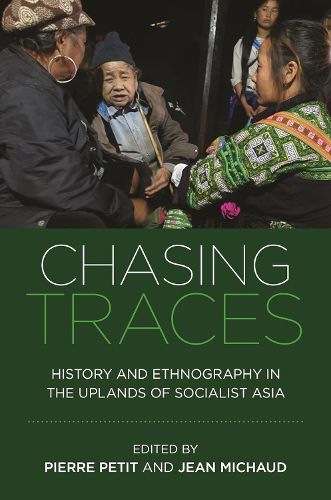Readings Newsletter
Become a Readings Member to make your shopping experience even easier.
Sign in or sign up for free!
You’re not far away from qualifying for FREE standard shipping within Australia
You’ve qualified for FREE standard shipping within Australia
The cart is loading…






In the connected highlands of southwest China, Vietnam, and Laos, recalling the past is a highly sensitive act. Among local societies, many may actively avoid recalling the past for fear of endangering themselves and others. Oral traditions and rare archives remain the main avenues to visit the past, but the national revolutionary narrative and the language of heritagization have strongly affected the local expression of historical memory. Yet this does not prevent local societies from producing their stories in their own terms, even if often in conflict with both national and Western categories. Producing history, ethnohistory, historical anthropology, and historical geography in the Southeast Asian highlands raises significant questions relating to methodology, epistemology, and ethics, for which most researchers are often ill-prepared. How can scholars manage to competently access information about the past? How is one to capture history-in-the making through events, speech acts, rituals, and performances? How is the memory of the past transmitted-or not-and with what logic?
Based on the experiences and reflections of a dozen diverse scholars rooted in decades of work in these three communist states, Chasing Traces is the first book about historical ethnography and related issues in the Southeast Asian highlands. Taking a critically reflexive posture, the authors make a plea for the individual, the hidden, and the backstage, for what life is really like on the ground, as opposed to imagined homogeneity, legibility, and unambiguousness. Their investigations on the history of ethnic minority communities adds archival historiography to ethnographic fieldwork and examines the relationship between the two fields. The individual chapters each tell distinctive stories of the conjunction of fieldwork, archival research, official surveillance, community participation, cultural norms, partnership with local scholars, and the other factors that both facilitate and frustrate the research enterprise of writing about the past in these societies. A timely work, this volume also provides guidelines for alternative ways to document and reflect when physical access becomes limited due to factors such as pandemic, political instability, and violence, and offers creative ways for researchers to cope with these dramatic shifts.
$9.00 standard shipping within Australia
FREE standard shipping within Australia for orders over $100.00
Express & International shipping calculated at checkout
In the connected highlands of southwest China, Vietnam, and Laos, recalling the past is a highly sensitive act. Among local societies, many may actively avoid recalling the past for fear of endangering themselves and others. Oral traditions and rare archives remain the main avenues to visit the past, but the national revolutionary narrative and the language of heritagization have strongly affected the local expression of historical memory. Yet this does not prevent local societies from producing their stories in their own terms, even if often in conflict with both national and Western categories. Producing history, ethnohistory, historical anthropology, and historical geography in the Southeast Asian highlands raises significant questions relating to methodology, epistemology, and ethics, for which most researchers are often ill-prepared. How can scholars manage to competently access information about the past? How is one to capture history-in-the making through events, speech acts, rituals, and performances? How is the memory of the past transmitted-or not-and with what logic?
Based on the experiences and reflections of a dozen diverse scholars rooted in decades of work in these three communist states, Chasing Traces is the first book about historical ethnography and related issues in the Southeast Asian highlands. Taking a critically reflexive posture, the authors make a plea for the individual, the hidden, and the backstage, for what life is really like on the ground, as opposed to imagined homogeneity, legibility, and unambiguousness. Their investigations on the history of ethnic minority communities adds archival historiography to ethnographic fieldwork and examines the relationship between the two fields. The individual chapters each tell distinctive stories of the conjunction of fieldwork, archival research, official surveillance, community participation, cultural norms, partnership with local scholars, and the other factors that both facilitate and frustrate the research enterprise of writing about the past in these societies. A timely work, this volume also provides guidelines for alternative ways to document and reflect when physical access becomes limited due to factors such as pandemic, political instability, and violence, and offers creative ways for researchers to cope with these dramatic shifts.